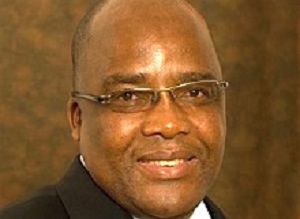
Critics of the National Health Insurance plan are "hardliners, driven by their desire to defend and perpetuate their own positions of huge benefit and privilege at the expense of the overwhelming majority", writes Health Minister Dr Aaron Motsoaledi in City Press.
About a month ago, the national Health Department released the white paper on the National Health Insurance (NHI), which saw critics immediately going into overdrive, raising at least three issues, says Motsoaledi.
He writes: “The first was that the NHI was a non-starter because of the poor quality of public healthcare. Actually, they went as far as saying that it was unworkable in our country. Two, that the NHI was unaffordable. Three, that the whole idea of the NHI was a ploy to destroy private healthcare, which had no problem and was the only hope for the nation.
“The first two issues are being brought as new observations, but actually they are not new. The National Development Plan (NDP), our socio-economic blueprint that has been adopted by virtually all political parties in Parliament, clearly stated that we need universal health coverage (UHC), in which funds are pooled to provide access to good quality healthcare regardless of socioeconomic background. In their wisdom and research, the 25 commissioners of the NDP said that, in order to achieve UHC, South Africa would need to solve two major problems of the healthcare system. These are the exorbitant cost of private healthcare and the poor quality and lack of efficiency in the public healthcare system.
“As the government, we embraced the findings of the commissioners, but the critics of NHI only acknowledge one problem and turn a blind eye to the other problem of the high cost of private healthcare. We are painfully aware that NHI will never be successful without improved quality and efficiency of the public healthcare system, which serves the majority of the population. Everything we are planning is in that direction. Unlike our critics, we want to argue that the second problem can only be ignored at our own peril.
“Last week, no less a person than former Chief Justice Sandile Ngcobo released a report on the findings of an extensive inquiry that took four years to conclude. On more than two occasions, he received input from the World Health Organisation as well as the authority on competition law, the Organisation for Economic Co-operation and Development. Their advice was very clear – that we are running one of the most expensive private healthcare systems in the world, but, further, that we are the only country that is spending so much money on so few people. The methodology used to arrive at the findings by the Ngcobo commission has been used for more than 30 years in Europe, but still hardliners, who are driven by their own desires to defend and perpetuate their own positions of huge benefit and privilege at the expense of the overwhelming majority of our people, want us to believe that there was something wrong with the findings.
“It is instructive to note that the people who argue that the NHI will be unaffordable to the country are actually basing their argument on the belief that the cost of private healthcare is a world gold standard which nobody can change and hence, in calculating the cost of NHI, they take this high cost, largely discredited by these reputable bodies in the world, and extrapolate it mathematically to the rest of the population. This is not the route that the NHI is designed to follow.
“These hardliners accuse the state of using the Ngcobo commission to pursue the rich, who, they argue, are by and large content with whatever they are paying and have no problem with the cost. What is being missed here, whether through ignorance or deliberately, is that the so-called rich people who are being targeted include ordinary teachers, nurses, doctors, policemen, magistrates and judges, politicians, clerks, managers, and trade union leaders.
“With the exception of some in the last group, all of the above are employed by the state. And when the cost of private healthcare increases exponentially, the state has to subsidise them. It does not end there. The state also offers tax rebates to any South African who has medical aid, whether they are employed by the state or not. Hence, in 2015, the state subsidy to private healthcare was R26bn and the tax rebates were R20bn – a total of R46bn. Three years later, in 2018, the state subsidy has increased to R31bn and the tax credits to R26bn. All these are driven by the ever-escalating cost of private healthcare, and the state is obliged to tag along in terms of the laws of the country.
“And because the state is legally obliged, its capacity to finance the public healthcare system has equally diminished over that same period. In simple language, the state is ratcheting up its financial support to private healthcare for a selected few who are, by and large, self-sufficient on their own, while at the same time reducing its support for the majority who are poor and dependent on the state.
“If you want to see why the country is said to be the most unequal society in the world, you do not have to look further than the healthcare system. It is inconceivable that, with all the evidence provided, a democratic and caring state should leave such gross inequality unattended.
“As the state, we will continue to plan, through the NHI, a massive reorganisation of the current healthcare system, both public and private, to bring about affordability and access to good quality for all.”
[link url="https://www.news24.com/Columnists/GuestColumn/fix-cost-and-quality-of-healthcare-20180720"]City Press report[/link]
